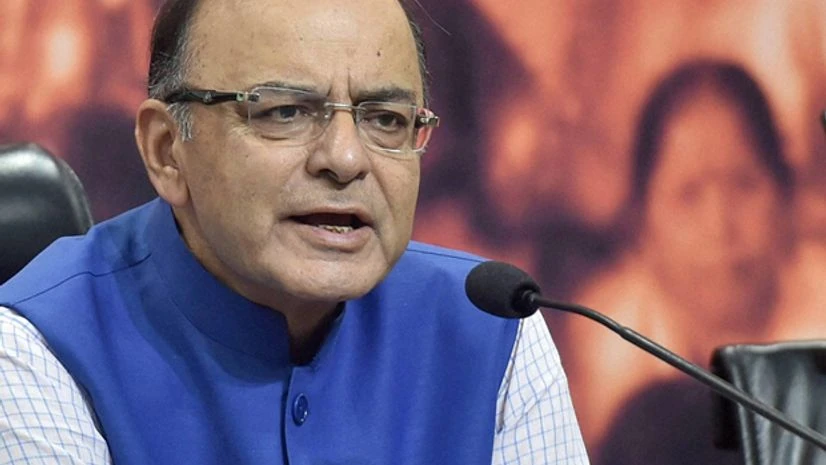In his first comments on the Supreme Court's striking down the National Judicial Appointments Commission (NJAC) Act, Finance Minister Arun Jaitley said on Sunday that democracy in India cannot be "a tyranny of the unelected". Jaitley, whose voice is among the most important after Prime Minister Narendra Modi's in the government, said democracy would be in danger if the elected are undermined. He said one does not have to weaken parliamentary sovereignty to strengthen independence of judiciary.
Himself a former law minister, Jaitley posted his views on the judgment in a Facebook post titled 'The NJAC judgment - An Alternative View?', which he described as his "personal views". He said the judgment was based on political bashing and history belied any claims that only the institution of judiciary can protect democracy. He said it were politicians who had fought to save democracy when the Supreme Court caved in during the Emergency of 1975-77.
Also a noted Constitutional lawyer, he said the judgment was unsound on four principles. These included the court arrogating legislative powers, by trying to re-legislate and rewrite the law. "The Supreme Court('s) opinion is final. It is not infallible," Jaitley said.
More From This Section
He faulted the five-judeg Bench's judgment as based on "erroneous logic" that independence of the judiciary would be compromised because of political involvement. He said "political bashing is the key to the judgment" and "akin to the 9:00 pm television programmes".
Jaitley said the judgment, in its focus on upholding the primacy of one basic structure, the independence of judiciary, has diminished five other basic structures of the Constitution, namely, parliamentary democracy, an elected government, the council of ministers, an elected Prime Minister and the elected Leader of the Opposition. "This is the fundamental error (of the judgment)... There is no constitutional principle that democracy and its institutions have to be saved from elected representatives," he said.
He added: " The Indian democracy cannot be a tyranny of the unelected and if the elected are undermined, democracy itself would be in danger."
He criticised the judgment in its intent " to rubbish all other basic structures by referring to them as "politicians". Jaitley felt the arguments in the 1,030-page judgment should have been on a "sounder footing". The minister said: "If one leader (a reference to L K Advani's comments that forces that could crush democracy were now stronger than ever before, and the judiciary was more responsible than the other institutions for the functioning of democracy, which the judgment alluded to) feels that there are dangers of emergency, there is no presumption that only the Supreme Court can save it."
He said it was the politicians who fought to save democracy, including the likes of him who went to jail, during the Emergency. "It was the Supreme Court that caved in and, therefore, for the court to assume that it alone can defend the nation against Emergency, is belied by history," Jaitley said. On the SC's fears that people representing alternative sexuality might be victimised, Jaitley said he had publicly supported the opinion of the Delhi high court when it decriminalised homosexuality but "it was the Supreme Court which recriminalised alternative sexuality".
The second fundamental error of the judgment, Jaitley said, was in the court's reinterpretation of the provisions of Articles 124 and 217 of the Constitution. Article 124 deals with appointment of judges in the Supreme Court and
Article 217 with the appointment of judges of the High Court. The finance minister said: "No principle of interpretation of law anywhere in the world, gives the judicial institutions the jurisdiction to interpret a constitutional provision to mean the opposite of what the Constituent Assembly had said... The court can only interpret - it cannot be the third chamber of the legislature to rewrite a law." He said the third error in the judgment is that the court not only struck down the 99th Constitutional amendment, which it is entitled to do, but re-legislated the repealed provisions of Articles 124 and 217, which only the legislature can do.
The fourth error, he said, is that the court again assumed the role of the legislature when it conceded that the collegium system was defective and fixed a hearing for its improvement. "If there is a problem with the procedure of judicial appointments, have those legislative changes to be evolved outside the legislature?"

)
